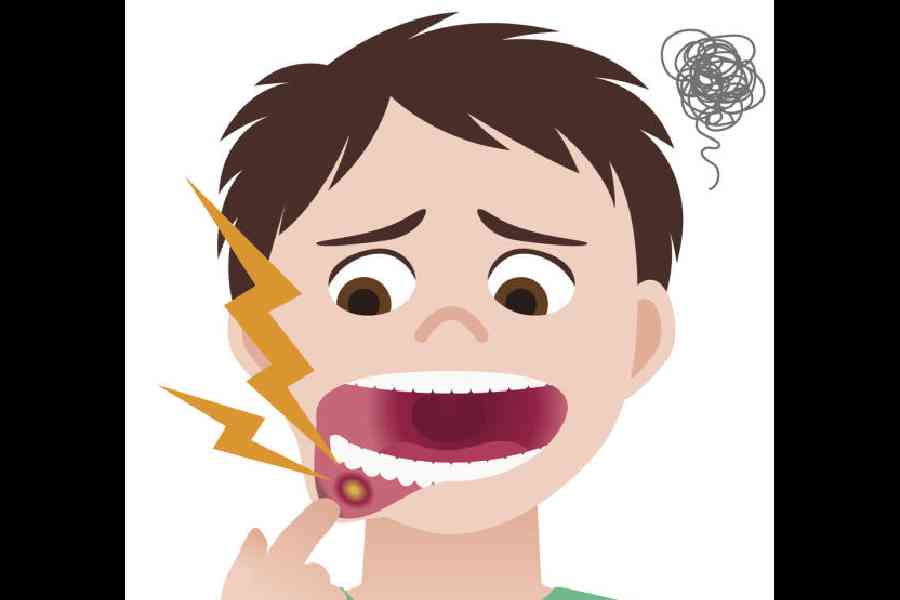Mouth ulcers are a widespread problem. Actually, one out of five people of all ages can suddenly develop them. It usually starts with severe pain inside the mouth, aggravated by eating or drinking anything. If one looks inside the mouth, one can usually see an ulcer. These aphthous ulcers or canker sores are typically single, grey in the centre and red on the outside. They may be on the cheeks, the side of the tongue or the gums. They make brushing the teeth and sometimes even speaking difficult. After 10-14 days of discomfort, they spontaneously inexplicably disappear, often with no treatment at all, only to appear a few months later.
For some lucky people, mouth ulcers are a one-time occurrence. Often, though, they reappear four to five times a year. They may be precipitated by broken or sharp pointed teeth, which injure the side of the tongue or the inside of the mouth. They may be caused by dental work or a virus, bacterial or fungal infection. Many people find that their ulcers appear during a period of stress or when exposed to certain foods, especially those containing dyes or preservatives. In women ulcers may appear during a particular stage in the menstrual cycle. It can also be caused by constant contact with nicotine in chewing tobacco. People may feel it is due to Vitamin B complex or zinc deficiency. It can be due to autoimmune disease. Often no correlation can be found. A non-healing large ulcer that persists for more than three weeks should be taken seriously as it may be due to cancer.
Single mouth ulcers make life difficult but are harmless, not contagious, and cannot be spread through food, saliva or close contact like kissing. They are not proven to be caused by any particular bacteria, virus or fungus. Masks do not prevent them.
Multiple painful mouth ulcers on the other hand may be part of the hand, foot and mouth disease caused by the coxsackievirus or part of herpes simplex virus infections. In the case of hand, foot and mouth disease, shallow ulcers may be found on the hands and feet as well.
Sometimes, cold sores appear as little clusters outside (not inside) the mouth and on the side of the lips. They are preceded by a tingling sensation. The herpes simplex virus causes them. Infected people are very contagious. They should avoid close contact (kissing) and sharing food and personal items with others to reduce the spread of the virus.
To prevent recurrences, correct ill-fitting dentures, repair or file down broken teeth, avoid chewing tobacco and recognise allergens and avoid them. Make sure that you brush teeth twice a day and rinse out mouth after every meal. Once a day, if you can, massage salt and then sesame oil onto the teeth and gums.
Also, reduce stress and maintain hormonal balance with regular aerobic exercise and meditation.
The writer has a family practice at Vellore and is the author of Staying Healthy in Modern India. If you have any questions on health issues please write to yourhealthgm@yahoo.co.in










